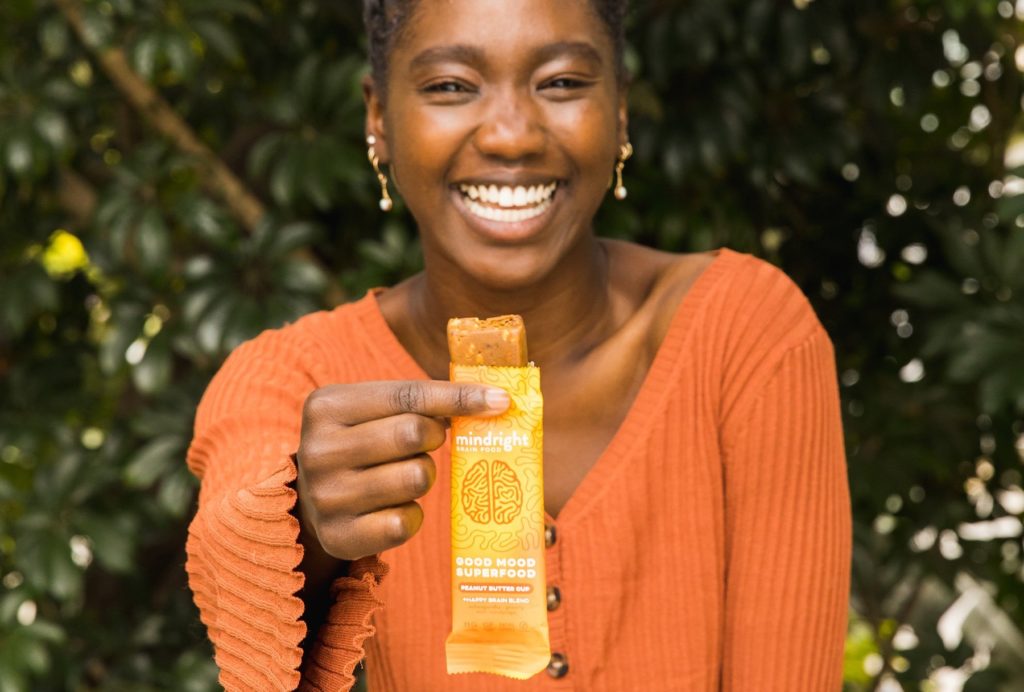Get ready for foods that boost your mood.
What it is: Functional foods offer health benefits beyond nutritional value. A subset of this sector, “good mood foods” include bars and beverages that integrate adaptogens, such as ginseng and ashwagandha, to provide stress support and anxiety relief.
How we got here: Over 75% of all doctor’s visits are linked to stress in some way. The condition costs the US economy an estimated $300B every year.
At the same time, consumers are getting a better grasp on the link between what we eat and how we feel; following both trend and research on gut-brain connection, microbiome startups have raised over $1B in VC in the past five years.
As we gravitate toward putting more natural things into our bodies, many are picking up functional, mood-lifting foods. Partnering with Headspace this March, Whole Foods Market underlined public sentiment, emphasizing the link between mood and food and finding that over 79% of consumers want to eat more mindfully.
After a year of converging crises—a global pandemic, worsening climate change, economic uncertainty, and social upheaval—US functional food sales increased by nearly 10%, and the industry is estimated to eclipse $229B by 2027. It’s not hard to see why brands are diving in:
- Last month, Smpl debuted its line of functional nutrition snack bars for “every mood,” from mental clarity to reduced anxiety/stress.
- Earlier this year, Sakara Life ($15M) and Mindright ($1.8M) closed million-dollar funding rounds.
- On the beverage side, Breakthru Beverage Group partnered with Recess in August to expand into CBD and relaxation, while plant-powered Sunwink rolled out into retail in September.
Elsewhere, a wide array of upstarts promise something for every taste palate, from PYM mood chews to myAir’s stress-relief and Moody’s feelgood ice cream.
Food-as-a-tool. Of note, good mood food founders assert that their products aren’t meant to replace medication or therapy.
Zak Williams, son of actor Robin Williams, started PYM after struggling with his father’s high-profile suicide. Explaining his motivations, Williams stated that his gummies are meant to be another tool in consumers’ mental health toolboxes — not the only one.
Punchline: Mental health is getting a food boost. From psychedelic tourism to teletherapy and now to good mood foods, the future of mental health treatment looks increasingly holistic. And that could be cause for a feast.






